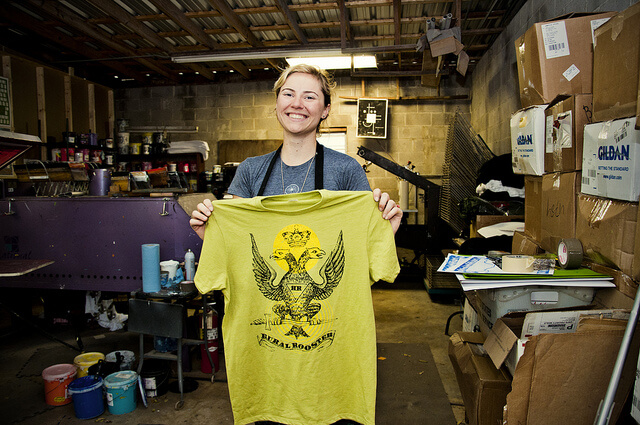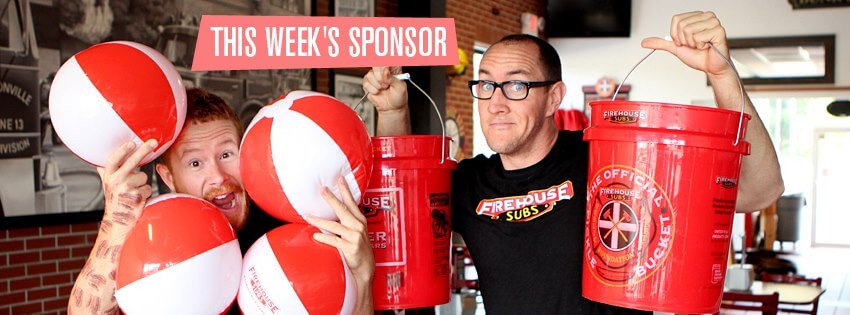
Western Australia is home to 211,203 small businesses, and you can bet that of those small businesses, no two share similar success stories.
Millions of lifestyle business owners around the world are trying to make a living doing what they love. Success is measured in all sorts of different ways, and there’s certainly no one right way to reach success. Sometimes it’s found by non-traditional means.
Below are 19 secrets from 19 lifestyle businesses that found success by stepping off the beaten path and doing something different.
1) It’s Never Too Early To Start
Chris Zane of Zane’s Cycles started fixing up bikes when he was 12 years old. When he was 16, he borrowed $23,000 from his grandfather to take over a failing bike shop in town. With some help from his mother, who watched the store while he was at school, Chris brought in $56,000 in sales in his first year. He expects to make more than $21 million in 2013.
Takeaway: you don’t have to know everything when you start a small business. Thanks to the Internet, unlimited resources are at your fingertips.
2) Hard Work Is Good Work
George Vlagos’ father put him to work in a shoe shop when he was younger to show him how difficult it was working with your hands. This was meant to encourage his son to find a different profession.
Well . . . it didn’t work. From the experience, George was inspired to design his own pair of shoes. His company, Oak Street Bootmakers, took off from there and currently has a six-week waiting list.
Takeaway: dive into your passion, and trust that your hard work will eventually pay off.
3) Profit Schmofit
ThankYou Water is one of Australia’s most inspirational start-up companies. They sell consumer goods like bottled water, food, and soap, and they use the revenue to fund water projects overseas in Cambodia, Kenya, and Uganda.
Takeaway: define what the term “success” means to you, and then draw up a plan to achieve that success.
4) Education Isn’t Everything
Adriano Zumbo dropped out of school when he was 15 to start a baking apprenticeship. Fifteen years later, you probably know Zumbo as being the sugar king of Sydney. The brand includes cafes, patisseries, a book, and it has appeared on the hit show MasterChef.
Takeaway: textbooks are important, but some lessons can only be learnt by doing.
5) Persistence Pays Off
At age 18, Carolyn Creswell was in danger of losing her part-time muesli making job when she decided to outright buy the struggling businesses. Seven years later, Carman’s Muesli finally made it onto market, and she now exports to over 32 countries.
Takeaway: the road won’t be smooth. Make sure you have a plan in place and goals to focus on to get you through the tough times.
6) Risks Are Necessary
Newly separated, pregnant, and out a job, Julia Ross sold everything she owned in an effort to raise $100,000 for her start-up venture, a recruitment agency. Ross Human Directions is now the largest ever female-owned company to list on the ASX.
Takeaway: no small business begins without risk. The key is making sure those risks are calculated and that the returns are worth it.
7) Be Yourself
Justin Herald had two things before he hit it big: $50 in his pocket and a bad attitude. He got his start by designing a line of t-shirts reflecting this bad attitude. Six years later, Attitude Clothing is an empire shaped around those original t-shirts.
Takeaway: use your unique skills and experiences to differentiate your business from competitors.
8) Consider Your ENTIRE Market
Nikki Durkin describes her business, 99Dresses, as being “an infinite wardrobe for women.” Women from around the world can trade clothing and accessories by exchanging virtual currency called buttons at 99Dresses. Without having to deal with exchange rates and other limitations of real currency, Nikki’s idea took off.
Takeaway: make your products or services easily accessible to your most important markets.
9) Try An Experiment
Four women. Four cities. And 365 dates.
That’s the premise behind 3six5dates, a social experiment where four women go on a multitude of dates and describe their experiences in a blog. See it as a reality dating blog of sorts. Shelli Trung, founder of 3six5dates, plans to expand the popular concept across other media channels.
Takeaway: customers connect with real people. That’s what makes reality television so popular, and that’s what made 3six5dates such an international hit.
10) Do What You’re Good At
Erin Baker is a baker. In 1994, she started making nutritious breakfast cookies. When she realised the cookies were only two Weigh Watches points, the brand exploded among dieters. A recent shift in how Weight Watchers points are calculated eventually forced Erin to target a different market in order to continue to do what she does best—bake.
Takeaway: don’t stray from your core offerings. They’re what got you to where you are in the first place.
11) Solve A Common Problem
Jason Toews and Dustin Coupal saw a need—to find the cheapest local gas prices. GasBuddy.com was launched in 2000, and in 2009, a mobile app followed. Over six million people have already download the app, and their website continues to draw increasing amounts of traffic.
Takeaway: the problem doesn’t have to be complicated. The key is finding a creative, hassle-free way of solving it.
12) Make Life Easier
Former cabbie, Russell Hall, found a way to make life a little easier by designing the smartphone app Hailo, a program that makes hailing a cab a breese. The product is still growing. They currently have a presence in Toronto, Boston and Dublin, and they plan to expand into the Far East and Europe by next year.
Takeaway: if you can make life easier for someone, you’ll make money. Customers are always looking for ways to make everyday tasks more manageable.
13) Appeal To The Particular
Not every business appeals to large audiences, nor do they have to. Abi Purser started the Longcroft Luxury Cat Hotel in 2010, providing a very particular service for a very particular market. It is now a franchise across Europe.
Takeaway: you don’t need a huge market to succeed. Some of the most successful businesses are built on providing great value to niche markets.
14) Try Something New
Take an old tradition, put a spin on it, and make it new. That’s what Lee Salben, founder of Peanut Butter & Co., did when he thought of the idea to make gourmet peanut butter and jelly sandwiches. They now sell in more than 15,000 supermarkets and specialty food stores.
Takeaway: some good ideas can become great ideas with the right tweak.
15) People Like Looking Good
Christina Daves founded CastMedic Designs when she broke her foot and had no way to make that large black boot look any more fashionable. Her sock designs have won awards and competitions and have been supported by a number of celebrities.
Takeaway: make a customer feel good about who they are. Recognise their individuality.
16) Simple Is Better
Not every business model has to be complicated.
Jason Sadler knows this all too well. He runs iwearyourshirt.com, where he gets paid to wear a company’s brand on a t-shirt to get people talking about the business.

Takeaway: products or services don’t have to be overly complicated to be effective.
18) Customers Like To Win
Carolyn Wilman is a promotional marketing consultant who has helped her clients win more than $1 million in sweepstake prises. She communicates her message through a book, a newsletter, a blog, and a weekly radio show. She also conducts full-day seminars on how to “win” more.
Takeaway: help customers reach their goals. Help them win.
19) The Little Things Matter
Some jobs don’t create a lot of buss, but they perform an important function. We Do Lines is a franchise owned by Chris Couri, Dan Rella, and Tom Darrow that started back in 2009. The main function? Paint the lines in a business parking lot. It’s not a service that’ll ever get international fame, but it’s hard to argue against its importance.
Takeaway: Some people may not understand why you’re running your own business. They may not see the point. That shouldn’t stop you from being any less passionate about it. Keep striving for success.
Final Thoughts
It’s always fun highlighting success stories. I really enjoy seeing how ordinary people develop extraordinary ideas. Each story may be different, but there’s always a lesson to be learned.
The most important idea you should take away from this post?
There’s no one right way to run a business. For some business, bucking the trend was the best thing that ever happened to them.
Hopefully you found a few of these secrets helpful.
Which of these success stories did you find the most interesting?
Tell us in the comments!
Image: Flickr
Image 2: Wholesome Baked Goods
Image 3: Attitude Clothing
Image 4: IWearYourShirt






